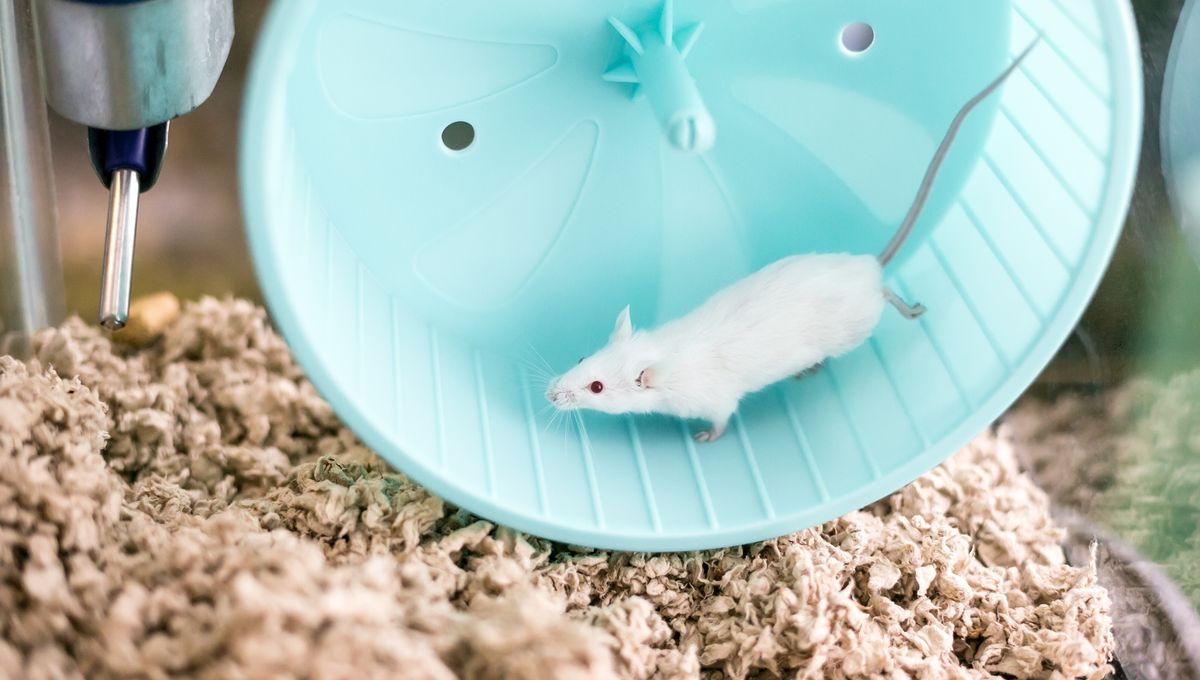
A new weight-loss drug has shown some promising results in mice, sparking hopes it could be developed for use in humans. We’ve heard a lot about these types of drugs recently, but this one works very differently. It doesn’t affect appetite or how much food you eat – instead, it tricks the body into thinking it’s doing more exercise.
The drug is called SLU-PP-332, and it was developed by a team based at the University of Florida. Back in March, they published a paper showing how the compound targets a group of proteins called ERRs, which are boosted during exercise. The proteins are vital for the function of metabolic pathways in tissues like the muscles and heart, but until now scientists have struggled to activate them using drugs.
After successfully showing that SLU-PP-332 enhanced ERR activity in mice of average weight, allowing them to run 45 percent further and for 70 percent longer than usual, the team turned their attention to testing the compound in obese mice.
The results of the new study demonstrate that with twice-daily treatment, the mice lost 12 percent of their body weight and gained 10 times less fat than an untreated group – all this while eating the same amount of food and doing the same amount of physical activity.
“This compound is basically telling skeletal muscle to make the same changes you see during endurance training,” explained lead researcher Thomas Burris in a statement. “When you treat mice with the drug, you can see that their whole body metabolism turns to using fatty acids, which is very similar to what people use when they are fasting or exercising. And the animals start losing weight.”
Appetite-suppressing drugs like Ozempic and Wegovy have hit headlines in recent months. Both of these branded drugs contain the same active ingredient, called semaglutide. A relatively new drug, semaglutide is sometimes prescribed to people with type 2 diabetes to help them manage their blood glucose levels, but has also been approved for use in weight management.
Like any drug, semaglutide can cause side effects, most particularly digestive issues like stomach pain, nausea, and diarrhea. Developing other drugs that work in different ways could help increase the range of options available to patients, maximizing the chances of them finding a treatment that works for them.
SLU-PP-332 has so far shown itself to have a good safety profile, and the team is prepping even more new research that demonstrates its potential as a treatment for heart failure in mice, but more tests will be needed before human trials can even be considered. The researchers are also hoping to be able to reformulate the drug so that it could be taken as a pill rather than an injection.
The full potential of SLU-PP-332 is yet to be explored, but the team hopes that it could pave the way for a treatment that allows people to lose weight whilst maintaining muscle mass. It could also be of benefit to older people, whose bodies typically respond less well to exercise, allowing them to reap more benefits from physical activity.
The road to developing new drugs is long, and although other exercise-mimicking drugs have been tested, none have yet made it to market. These findings in mice are an early step in this journey, but many will be watching with great interest to see where it leads.
The study is published in the Journal of Pharmacology and Experimental Therapeutics.
Source Link: New Weight-Loss Drug That Mimics The Effects Of A Workout Shows Promise In Mice